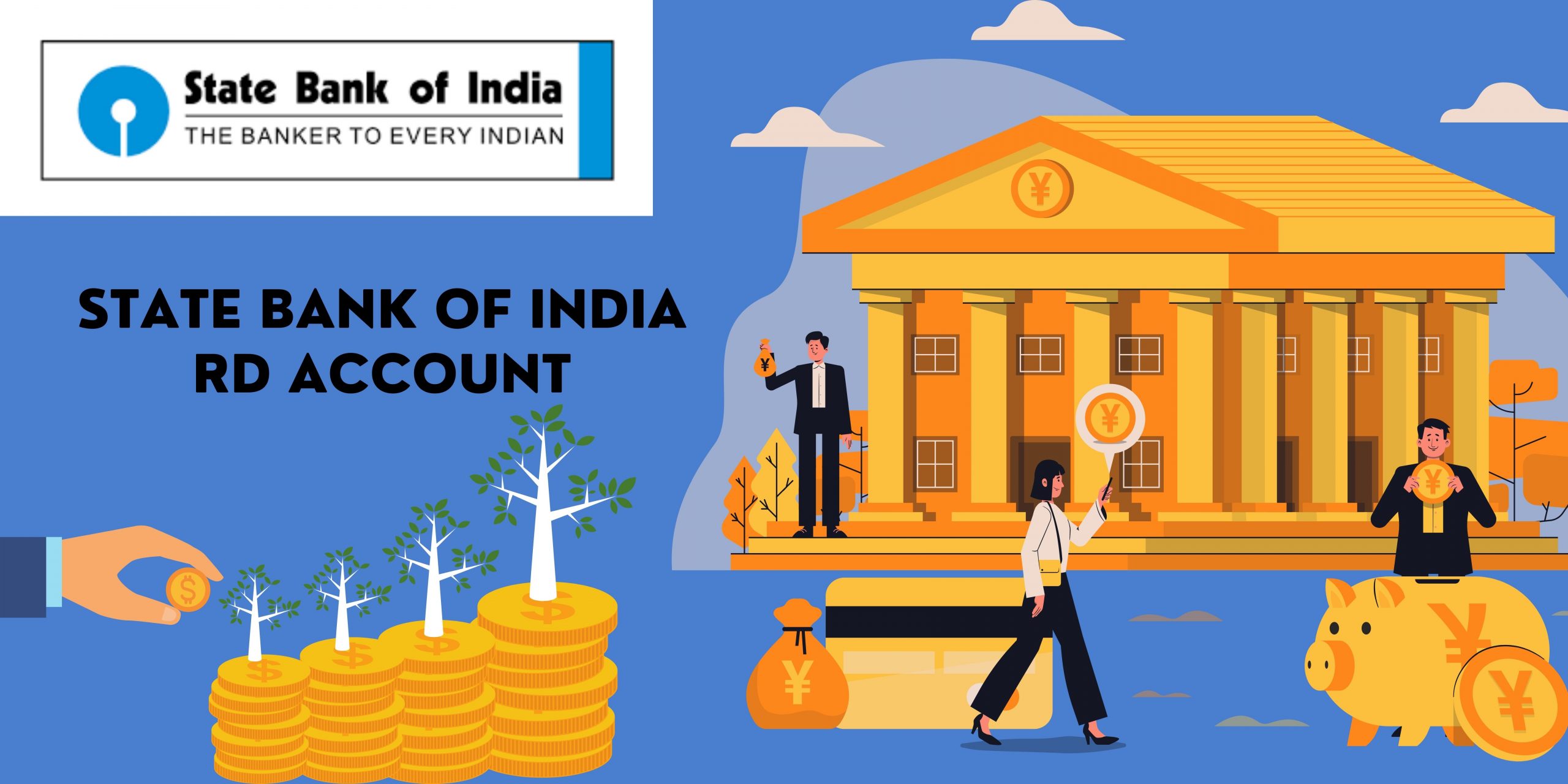State Bank of India Recurring Deposit Interest Rates
If you are considering a recurring deposit as a means to inculcating a savings habit and also aiming for some amount of capital growth, you are making the first move in the direction of investment and wealth generation. Recurring deposits are a means towards immediately diverting your savings into investments that can generate a higher amount of returns than your savings account.

Here are the SBI recurring deposit interest rates anticipated in 2022:
| Period | Interest Rates | Interest Rates for Senior Citizens |
| 12 months to less than 24 months | 5.00% | 5.50% |
| 24 months to less than 36 months | 5.10% | 5.60% |
| 3 years to less than 5 years | 5.30% | 5.80% |
| 5 years to 10 years | 5.40% | 6.20% |
Benefits of SBI recurring deposits
Start small:
Most people today work hard and spend just as hard. The remainder might not be spending as hard because they might have debts to pay. Either way, saving is typically not very easy and that’s why SBI’s minimum deposit amount of Rs 100 per month ( and thereafter in multiples of Rs 10) is especially appealing. Everyone can put aside at least Rs 100 per month.
Get it anywhere:
SBI has a wide network of branches and investors can opt for the SBI RD at any of the bank’s branches.
Invest large amounts:
There is no upper limit on the amount you can invest in your SBI recurring deposit.
Credit collateral:
Your SBI recurring deposit can serve as collateral when you want to obtain a loan or when you want to apply for an overdraft facility.
Nominee:
As with most investments, you can put in nominee details should any unforeseen circumstances result in your not being able to claim your capital and interest upon maturity.
Convenient:
You can set up the account for your SBI recurring deposit proceeds to be credited into at the time of opening your recurring deposit account.
How to choose recurring deposits wisely
Interest rates:
You are asking the right questions by checking the interest rates that various banks offer for their recurring deposits. Consider checking with a few banks that you can easily access to open an account (if necessary), including the bank where you might already have a bank account.
Fees and charges:
Consider the fees and charges that you will need to pay to various banks in order to opt for a recurring deposit. Deduct the fees and charges from the actual amount that your interest will translate to and accordingly select the RD that is offering you the best returns. For instance, if you have chosen SBI for your recurring deposit, you will use the SBI interest rates to arrive at an amount of interest (in rupees, not a percentage) that you expect to earn on your investment. You will deduct the fees and charges (using another rupee amount, not a percentage) to arrive at the amount of anticipated earnings.
Play it safe:
If you already have some amount invested in SBI recurring deposits, you might want to consider investing with a handful of other scheduled banks. Public sector banks (that come under the list of scheduled banks) are usually seen as a safer bet, because the general logic is that if a public sector bank is in financial trouble, the RBI will step in and make sure that a favorable takeover comes to pass.
We have supplied you with the SBI interest rates that we promised, and we have told you about all the benefits that you stand to get from the recurring deposit that you are considering. However, you would not have a very balanced view, if you did not know about the factors that you must consider before you opt for a recurring deposit.
Have you heard of portfolio diversification?
Some investors have a low risk appetite and make an informed choice to invest in fixed deposits, recurring deposits and other low risk fixed income investments. Other investors simply do not know that they have options besides fixed income, real estate and gold. If you have a steady income and have several years of steady income ahead of you, you might just have the risk appetite to allow you to try mutual funds that match your risk appetite. Today you can invest in mutual funds, and also in the stock market, easily and safely from your smartphone (provided, of course, you make risk-considered, informed investment choices).
Penalties:
Did you know that you need to pay penalties for non payment of your installments for on your RD? Consider the penalty charges levied by different banks to make the right choice. SBI has the following penalty charges in place according to its website;
- For RD with a maturity period 5 years and less: Rs 1.50 per Rs 100 per month RD installment amount
- For RD with a maturity period above 5 years: Rs 2.00 per Rs 100 per month
You might want to use the relevant RD calculator like the SBI RD calculator for SBI RDs, for example, to evaluate what you are likely to earn on your recurring deposit investments
Conclusion: Evaluate your SBI RD by using the SBI recurring deposit calculator or by making your own calculations and comparing interest rates, fees and charges and total earnings between a few banks. Also consider spreading your capital across a few different banks to lower your risk and also consider your openness to a few different types of investments to maximize your earnings and wealth generation.





























